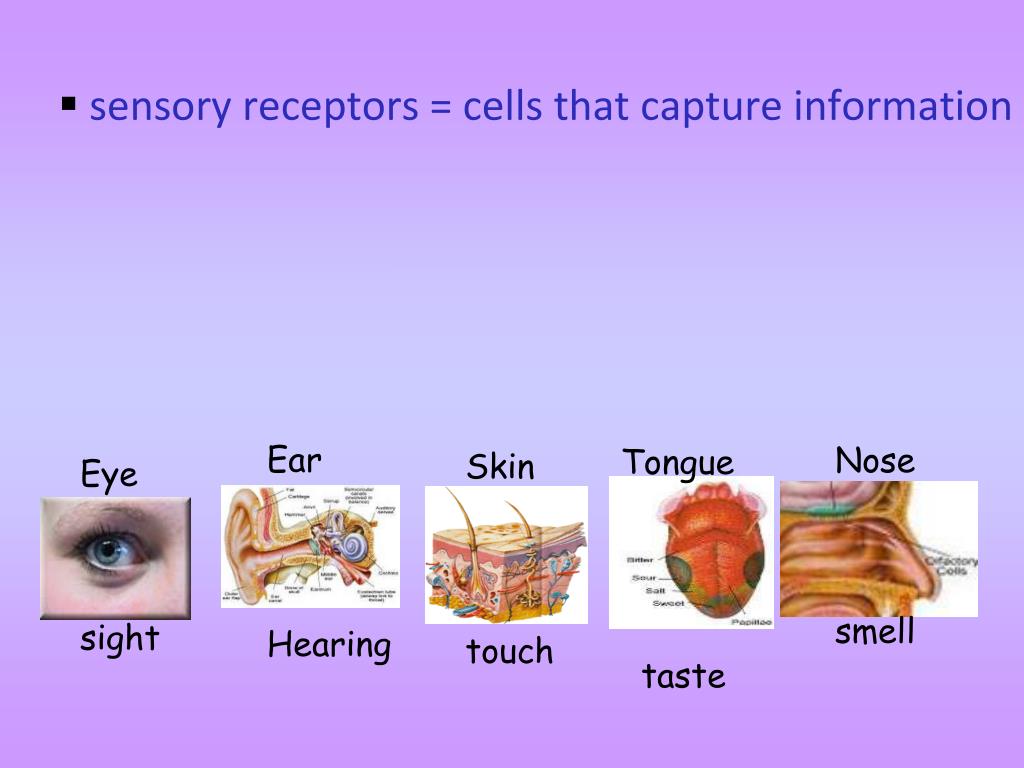The Sensory Receptors PowerPoint Presentation free download Biology Diagrams Now that we've got a basic understanding of the types of sensory receptors, let's discuss how they function. It all starts with stimuli the changes in the environment that can trigger these receptors. 1. Detection: When a stimulus occurs, it interacts with specific receptors. After reading this section, you should be able to-Define sensory receptor.; Define transduction, perception, sensation, and adaptation.; Distinguish between tonic and phasic receptors.; Compare and contrast the types of sensory receptors based on the type of stimulus (i.e., thermoreceptor, photoreceptor, chemoreceptor, baroreceptor, nociceptor [pain receptor], mechanoreceptor).

Your auditory receptors are immediately activated. Step 2: Transduction. The next step is transduction, where sensory receptors convert the detected stimulus into an electrical signal. It's a bit like translating a foreign language; the receptor takes the language' of the stimulus and changes it into a format that the nervous system can
Physiology, Sensory Receptors Biology Diagrams
Sensory receptors are often found as neurons which are specialized for the detection of stimuli (e.g., most mechanoreceptors in the skin are pseudounipolar neurons with peripheral endings adapted for detecting changes in pressure, vibration, touch etc.; rod and cone cells (photoreceptors) are specialised unipolar neurons which contain photosensitive pigments necessary for detecting light stimuli).

The sensory system follows two ascending pathways from the periphery to the central nervous system. Primary somatosensory neurons in both pathways are pseudounipolar. Sensory cell bodies are located in the dorsal root ganglion, with one peripheral axon that receives sensory input and one central axon that travels to the spinal cord. Once the sensory receptors are activated by a stimulus, they convert the energy into electrical signals. These signals travel along a network of neurons to the spinal cord and up to the brain. The thalamus (often referred to as the brain's relay station) then directs the signals to the appropriate area of the brain for processing. Structural Receptor Types: The cells that interpret information about the environment can either be (1) a neuron that has a free nerve ending, with dendrites embedded in tissue that receives a sensation, (2) a neuron that has an encapsulated ending in which the sensory nerve endings are encapsulated in connective tissue that enhances their

How Do Sensory Receptors Function In The Body? Biology Diagrams
Let's explore the various types of stimuli and their corresponding sensory receptors to gain deeper insight into this aspect of anatomy. Types of Stimuli The stimuli that our bodies encounter can be broadly categorized, each triggering specific sensory receptors adapted to perceive and respond to these signals.
